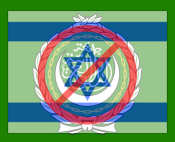 The Texas subsidiary of German logistics and transportation provider Rohde & Liesenfeld agreed to pay $108,000 to settle charges by the Burea of Industry and Security (“BIS”) that Rohde & Liesenfeld had committed 36 violations of BIS’s antiboycott regulations. Those regulations are a response to the Arab League boycott of Israel and forbid U.S. persons from providing information concerning its or another person’s business relationships with or in a boycotted country.
The Texas subsidiary of German logistics and transportation provider Rohde & Liesenfeld agreed to pay $108,000 to settle charges by the Burea of Industry and Security (“BIS”) that Rohde & Liesenfeld had committed 36 violations of BIS’s antiboycott regulations. Those regulations are a response to the Arab League boycott of Israel and forbid U.S. persons from providing information concerning its or another person’s business relationships with or in a boycotted country.
According to the charging documents, Rohde & Liesenfeld supplied to Al Furat Petroleum, on 36 occasions, invoices from Tropwind Trading Ltd. containing the phrase
We certify that the goods enumerated in this Invoice are not of Israeli origin and do not contain any Israeli materials.
The problem here is that the invoice was supplying a negative certificate of origin, even though section 760.3(c) of the Export Administration Regulations (the “EAR”) makes clear that a U.S. person, in connection with an export to a boycotting country, may only supply a positive certificate of origin stating where the product originates. A negative certificate of origin certifying where the product does not come from is prohibited.
The problem here is that there is another requirement for a violation of the anti-boycott regulations which does not appear to have been met. Section 760.1(e) of the EAR requires that the information be furnished “with intent to comply with, further, or support an unsanctioned foreign boycott.” Here, although it seems clear that Tropwind made the negative certification with such intent, Tropwind is not a U.S. person and isn’t subject to the regulations.
The case for intent against Rohde & Liesenfeld is a bit shakier. A logistics provider does not necessarily inspect all the shipping documents, and if Rohde & Liesenfeld was unaware of this negative certification in the invoice, it’s delivery of the invoice with the shipping documents wouldn’t constitute intent. There is nothing to suggest whether the clause at issues was conspicuous and on the face of the document or buried among the 6 point terms and conditions printed on the back of the invoice If BIS is seeking to impose liability on freight forwarders, logistics providers, and the like, it should provide some notice to the export community in the settlement documents of the basis for its finding that the freight forwarder or logistics provider had an intent to comply with the boycott.
 Permalink
Permalink
Copyright © 2008 Clif Burns. All Rights Reserved.
(No republication, syndication or use permitted without my consent.)

 Posted by
Posted by  Category:
Category: 

